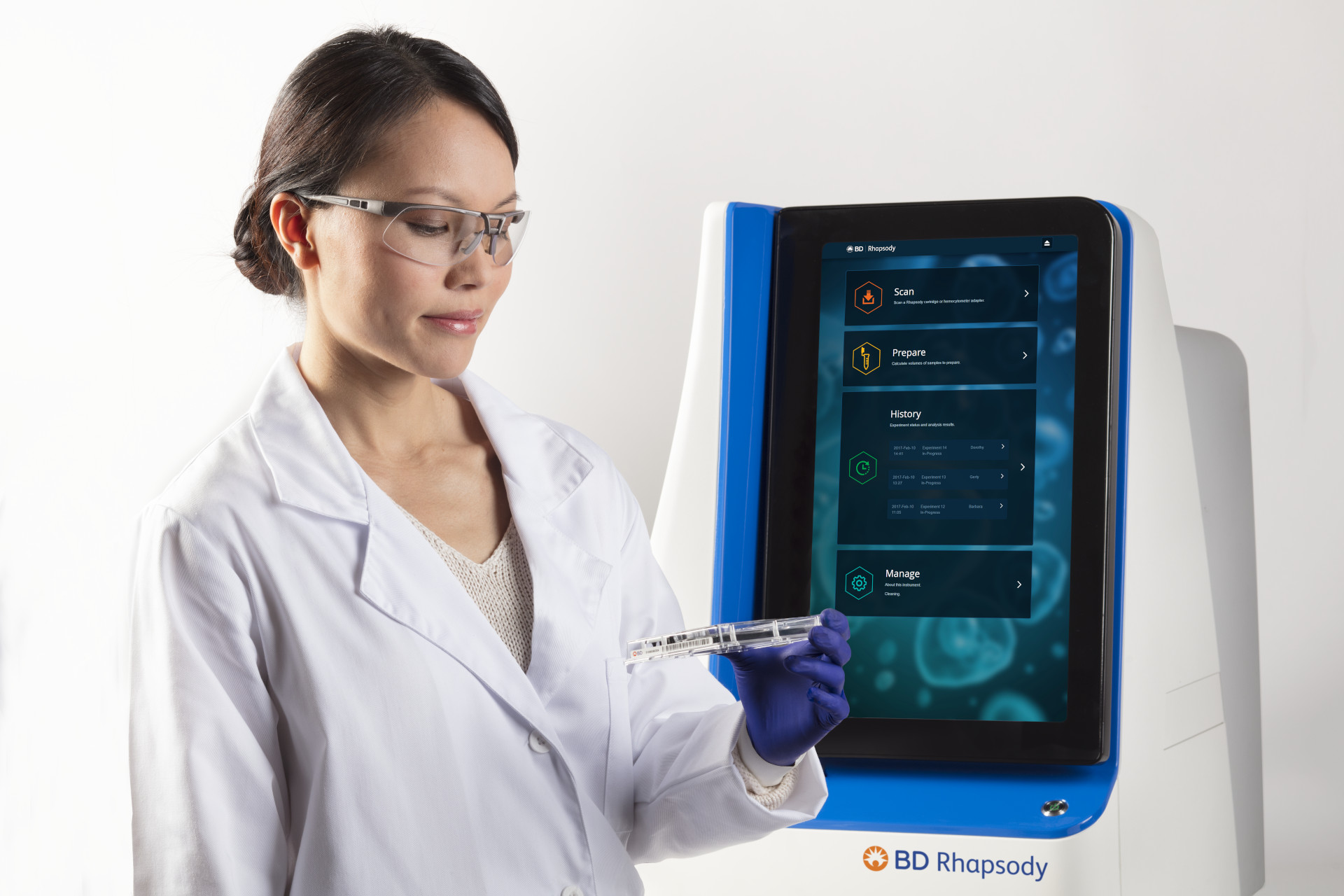
Aruna Ayer, PhD, Sr. Director of Single-Cell Multiomics
Over the past decades, scientists have been interested in unraveling the complexity of cells, the building blocks of life. The human body is composed of trillions of them, each with multiple dimensions that regulate our health and balance. To fully understand human health and disease, it is important to understand the movement of information from DNA to RNA to proteins – sometimes called the “central dogma” of molecular biology.
BD first pioneered flow cytometry technology in the 1970s and it remains one of the most powerful tools used by life scientists to analyze and characterize the cell at the protein layer, including identifying and quantifying proteins. But as biologists have sought to know more, the single “ome” of the proteome, or even transcriptome, could not fully explain cellular complexity. What if a scientist could perform multiple analyses on a single cell at the same time? In other words, what if there was a multidimensional approach to an inherently multidimensional puzzle?
Enter single-cell multiomics, the latest leap forward in life science research.
Single-cell multiomics is an approach that lets researchers look at multiple layers of "omics" information on a single cell, at the exact same time, to exponentially increase the parameters that can be investigated and reveal a more comprehensive view of human health and disease – a view that couldn’t be achieved using a single omics approach. And what is "omics?" It refers to biological sciences that involve measuring biological molecules and end with the suffix omics – which include genomics, transcriptomics, proteomics and epigenomics.
Understandably, the field of single-cell multiomics has exploded in recent years. Scientists are increasingly using the approach to make breakthroughs across fields including cancer research, drug discovery, cellular biology, infectious disease research and more. For example, single-cell multiomics has helped reveal cellular and tissue heterogeneity and helped researchers understand why different patients have variable responses to the same cancer treatment or why different people have variable responses to SARS-CoV-2 infection or vaccination.
The number of single-cell multiomics publications has increased, including exciting recent work like this Nature paper on novel insights into CAR T cell characteristics associated with long-term remission in leukemia, and this Cell paper on the accurate characterization of cellular heterogeneity including ability to capture fragile cells such as neutrophils in lung cancer.
Flow cytometry and single-cell multiomics naturally go hand in hand, sharing a connected workflow, and at BD, we’ve supported researchers from the onset with the high-quality BD Rhapsody™ Single-Cell Analysis System, single-cell multiomic assays and bioinformatics tools that can provide reproducible single-cell multiomics data, as well as antibody conjugates that enable protein analysis alongside genomic analysis, all of which are critical for translational research.
While rapid strides have been made in single-cell multiomics, progress in the field is still needed to continue to make it more accessible and practical for more researchers. And that’s what makes the latest innovation from BD so promising.
 The team recently launched the BD Rhapsody™ HT Xpress System, a high-throughput single-cell multiomics platform that can analyze up to eight times more cells than the previous BD system, which means researchers can run up to half a million cells at one time. The system preserves sample integrity and gives scientists the flexibility to analyze multiple samples and different cell sizes, types and fragility to obtain more insights in less time. This means a broader set of scientists will now potentially be able to leverage the power of single-cell multiomics.
The team recently launched the BD Rhapsody™ HT Xpress System, a high-throughput single-cell multiomics platform that can analyze up to eight times more cells than the previous BD system, which means researchers can run up to half a million cells at one time. The system preserves sample integrity and gives scientists the flexibility to analyze multiple samples and different cell sizes, types and fragility to obtain more insights in less time. This means a broader set of scientists will now potentially be able to leverage the power of single-cell multiomics.
At BD, we continue to innovate because the breakthroughs that can be enabled by this fast-emerging field have the power to impact so many – and we're only getting started. On behalf of the single-cell multiomics team at BD, we humbly look forward to empowering the scientific community in shared pursuit of advancing the world of health™.
More information on the BD Rhapsody™ HT Xpress System*, which is now available globally, can be found here and through BD sales representatives, and more information on the BD single-cell multiomics portfolio of reagents, instruments, software and targeted gene panels is available at bdbiosciences.com.
*For Research Use Only, Not for Use in Diagnostic or Therapeutic Procedures
Subscribe to receive BD blog alerts